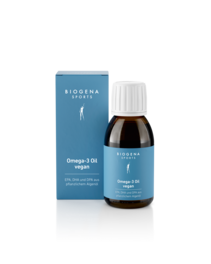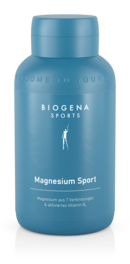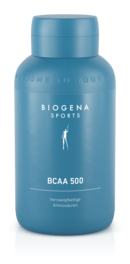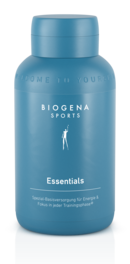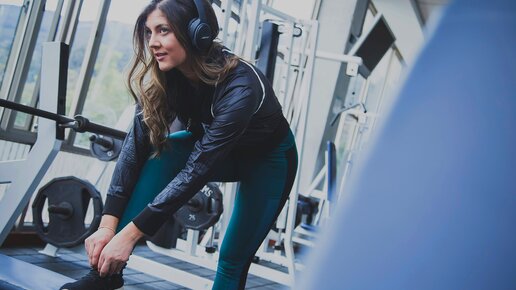Sport and nutrition belong together. The right nutrients not only help you reach your full potential, but also recover faster and stay healthy in the long term. Here you can find out how to tailor your diet to your training – explained simply and based on scientific evidence.
Energy requirements during exercise: What does your body really need?
Every movement costs energy – but how much exactly? Your individual requirements depend on various factors: body weight, height, training intensity, duration and personal goals.
While endurance athletes rely on a high carbohydrate intake, strength athletes primarily need protein for muscle building. The goal is to provide the body with exactly the right amount of energy without overloading it. A nutritionally balanced diet ensures that the body is supplied with sufficient energy without building up unnecessary fat reserves.
Sport and nutrition for athletes or a sports person: a simple explanation at a glance
To keep your body performing at its best, it needs a balanced combination of macro- and micronutrients:
- Carbohydrates provide quick and sustained energy
- Proteins are the building blocks for muscle growth and regeneration
- Fats ensure sustained energy and cell health
- Vitamins and minerals support numerous bodily functions
- Water keeps you hydrated and performing at your best
The role of carbohydrates in sports nutrition: your fuel for peak performance
Carbohydrates are the main source of energy for intense exercise. But not all carbs are the same:
- Complex carbohydrates (whole grains, legumes) provide long-lasting energy.
- Simple carbohydrates (fruit, honey) give you a quick boost before training.
Pay attention to timing: Carbohydrates provide energy before your workout and help replenish your glycogen stores afterwards. Since our storage capacity for carbohydrates is limited, we recommend incorporating a certain amount of carbohydrates into your diet every day, especially if you do endurance sports.
The role of proteins in sports nutrition: muscles love protein
Protein is the key to muscle growth and recovery. But it also plays an important role in our bones, connective tissue, cell and energy metabolism, hormone balance and immune system. The best sources of protein are lean meat, fish, eggs, dairy products and plant-based alternatives such as lentils, beans and tofu. Studies show that just 10 g of additional protein per day can contribute to an increase in muscle mass.
The role of fats in sports nutrition: more than just energy
Fats are essential for your body – especially for long-lasting exertion such as endurance training. Essentially, however, the same recommendations apply here as for the general population – regardless of whether you are athletic or not. High-quality foods such as avocados, nuts, seeds and extra virgin olive oil provide you with healthy fats and keep your energy levels stable. Pay particular attention to your intake of essential fatty acids such as omega-3 fatty acids, which can be found in flaxseed oil and fish. To optimise your omega-3 balance, it is also a good idea to take DHA and EPA directly, as the amount you get from food is usually too low. On the other hand, avoid trans fats and highly processed products – they slow you down.
The role of minerals and vitamins in sport: small helpers with a big impact
Vitamins and minerals keep your body in balance:
- Magnesium: Helps muscle function, supports energy metabolism, maintains electrolyte balance and maximises athletic performance
- Iron: Essential for oxygen transport and energy production
- Vitamin C: Strengthens the immune system and improves iron absorption
- Vitamin D: Supports the immune system as well as bone and muscle function
A varied diet with plenty of fruit, vegetables and high-quality foods usually provides you with all the micronutrients you need. However, when you exercise, sweat, train intensively or restrict your diet during weight loss phases, you may need additional vitamins and minerals. This is where fitness supplements and dietary supplements come into play. Vitamin D, iron, potassium and sodium in particular need to be monitored closely when exercising.
Fluid intake during exercise
Water is your best training partner – even a 2% loss of fluid can reduce your performance. Here's how to stay on the safe side:
- Before training: 500 ml of water
- During training: approx. 150–250 ml every 15–20 minutes (depending on intensity)
- After training: drink enough to restore your fluid balance
As electrolyte balance is important for endurance, the composition of the fluid also plays a role. Mineral water rich in magnesium or sodium is recommended here.
Fitness supplements & nutritional supplements in sport: useful support for your goals
It is not always possible to obtain all nutrients from your diet – supplements can be a useful addition here:
- Protein powder for muscle building
- BCAAs to support recovery and reduce sports-related muscle damage
- Creatine for more speed and performance
- Omega-3 fatty acids for better recovery and less inflammation
- Magnesium for your muscles, energy and protein and glycogen metabolism
- Potassium combined with high-quality amino acids for muscles, energy metabolism and endurance
Important: Dietary supplements are not a substitute for a healthy diet, but rather a supplement!
Nutrition and nutritional requirements in strength training vs. endurance sports
Whether you prefer lifting weights or racking up the miles, your body has different needs:
- Strength training: More protein and amino acids for muscle building and moderate carbohydrates for energy. Taking zinc can also be beneficial for supporting cell division and promoting normal testosterone levels in the blood.
- Endurance sports: A higher carbohydrate intake for long-lasting energy and protein for regeneration are essential. In addition, B vitamins, iron, iodine and magnesium contribute to normal energy metabolism.
Adapt your diet to your training goals to get the best out of yourself!
Exercise and nutrition for weight loss: the perfect combination
Training alone is not enough – the right diet makes all the difference! To burn fat effectively, you should:
- Maintain a slight calorie deficit (consume fewer calories than you burn)
- Eat a protein-rich diet to prevent muscle loss
- Combine strength and endurance training to maximise fat burning
- Focus on a balanced diet instead of strict diets
The result: you lose fat, retain muscle and feel fitter than ever!
Conclusion: The benefits of healthy sports nutrition for athletes
The right diet makes all the difference – it boosts your performance, supports recovery and keeps you healthy in the long term. With a balanced combination of carbohydrates, proteins, fats, vitamins and sufficient fluids, you can take your training to the next level. Depending on your nutritional requirements and the type of sport you do, supplements may also be useful to help you get the most out of yourself.
Your takeaway: Listen to your body, focus on natural foods and support your body with high-quality nutrients. Not only will you get fitter, you'll also feel great all round!
Sources:
Bernasconi AA, et al. Effect of Omega-3 Dosage on Cardiovascular Outcomes: An Updated Meta-Analysis and Meta-Regression of Interventional Trials. Mayo Clin Proc. 2021 Feb;96(2):304-313. https://pubmed.ncbi.nlm.nih.gov/32951855/
Dighriri IM, et al. Effects of Omega-3 Polyunsaturated Fatty Acids on Brain Functions: A Systematic Review. Cureus. 2022 Oct 9. https://pmc.ncbi.nlm.nih.gov/articles/PMC9641984/
Fernández-Lázaro D, et al. Omega-3 Fatty Acid Supplementation on Post-Exercise Inflammation, Muscle Damage, Oxidative Response, and Sports Performance in Physically Healthy Adults-A Systematic Review of Randomized Controlled Trials. Nutrients. 2024 Jun 27;16(13):2044. https://pubmed.ncbi.nlm.nih.gov/38999792/
Jackman SR, et al. Branched-Chain Amino Acid Ingestion Stimulates Muscle Myofibrillar Protein Synthesis following Resistance Exercise in Humans. Front Physiol. 2017 Jun. https://pubmed.ncbi.nlm.nih.gov/28638350/
Kephart WC, et al. Ten weeks of branched-chain amino acid supplementation improves select performance and immunological variables in trained cyclists. Amino Acids. 2016 Mar;48(3):779-789. https://pubmed.ncbi.nlm.nih.gov/26553453/
Kerksick CM, et al. International society of sports nutrition position stand: nutrient timing. J Int Soc Sports Nutr. 2017 Aug 29. https://pubmed.ncbi.nlm.nih.gov/28919842/
Khemtong C, et al. Does Branched-Chain Amino Acids (BCAAs) Supplementation Attenuate Muscle Damage Markers and Soreness after Resistance Exercise in Trained Males? A Meta-Analysis of Randomized Controlled Trials. Nutrients. 2021 May 31;13(6):1880. https://pubmed.ncbi.nlm.nih.gov/34072718/
Kyriakidou Y, et al. Preliminary Investigations Into the Effect of Exercise-Induced Muscle Damage on Systemic Extracellular Vesicle Release in Trained Younger and Older Men. Front Physiol. 2021 Sep 24. https://pubmed.ncbi.nlm.nih.gov/34650440/
Tagawa R, et al. Dose-response relationship between protein intake and muscle mass increase: a systematic review and meta-analysis of randomized controlled trials. Nutr Rev. 2020 Nov 4;79(1):66–75. https://pubmed.ncbi.nlm.nih.gov/33300582/
Tarsitano MG, et al. Effects of magnesium supplementation on muscle soreness in different type of physical activities: a systematic review. J Transl Med. 2024 Jul 5;22(1):629. https://pmc.ncbi.nlm.nih.gov/articles/PMC11227245/
Waldron M, Patterson SD, Tallent J, Jeffries O. The Effects of an Oral Taurine Dose and Supplementation Period on Endurance Exercise Performance in Humans: A Meta-Analysis. Sports Med. 2018 May;48(5):1247-1253. https://pubmed.ncbi.nlm.nih.gov/29546641/
Frequently asked questions about nutrition for sports
The right nutrition is a game changer in sport! It provides the necessary energy for your training, supports your recovery and helps you stay healthy and perform well in the long term. Without the right nutrients, your body quickly becomes deficient, which can lead to exhaustion, muscle loss or longer recovery phases. With a balanced mix of carbohydrates, proteins, healthy fats, vitamins and minerals, you can reach your full potential.
To keep your body running at full speed, it needs the right building blocks:
- Carbohydrates – provide quick and long-lasting energy
- Proteins – essential for muscle building and regeneration
- Fats – provide sustained energy, especially in endurance sports
- Magnesium and potassium – support muscle function and prevent cramps
- Iron – essential for oxygen transport
- Water and electrolytes – prevent dehydration and keep you performing at your best
The perfect pre-workout breakfast is easy to digest, gives you energy and doesn't weigh you down! Here are some ideal options you can eat before exercising:
- Banana with almond butter – a quick energy boost without weighing you down
- Oatmeal with berries & yoghurt – filling, provides carbohydrates & protein
- Wholemeal bread with avocado and egg – long-lasting energy from complex carbohydrates and healthy fats
If you exercise early in the morning and don't have much of an appetite, a small smoothie or a handful of nuts will suffice. Important: always drink enough!
After training, it's time to start regenerating! Your muscles now need protein for repair and carbohydrates to replenish your energy stores. Good dinners after exercise include:
- Chicken with quinoa & vegetables – the perfect combination of protein & complex carbohydrates
- Salmon with sweet potatoes & broccoli – omega-3 fatty acids for regeneration
- Cottage cheese with nuts and berries – light, high in protein and perfect before bed
- Tofu salad with chickpeas and olive oil – plant-based protein and healthy fats for optimal recovery
After exercise, the rule is: no heavy, fatty foods – these are hard to digest and can affect your sleep!
Absolutely! A vegan diet and exercise are not mutually exclusive – on the contrary, many top athletes rely on a plant-based diet. The only important thing is to ensure you get enough protein and cover all your essential nutrients. The following are particularly valuable:
- Plant-based protein sources: lentils, beans, tofu, tempeh, quinoa, oats
- Healthy fats: nuts, seeds, avocados, high-quality oils
- Iron & vitamin C: legumes + foods containing vitamin C improve iron absorption
- Vitamin B12 & omega-3: targeted supplementation may be useful here
With the right planning, a vegan diet is not only possible, but can also bring numerous health benefits. We have the right vegan supplements for you, so you don't have to worry about meeting your nutritional needs.





